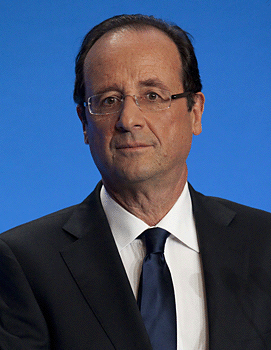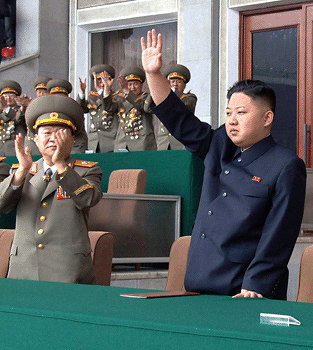Biden Certified as Winner of Election
Thursday, January 7th, 2021
United States President-elect Joe Biden and Vice President-elect Kamala Harris speak in Wilmington, Delaware, on Nov. 7, 2020, after being declared the winners of the presidential election. Both wear masks to help limit the spread of COVID-19.
Credit: © Andrew Harnik, AFP/Getty Images
In the early morning hours of Jan. 7, 2021, the United States certified its electoral count, making official Joe Biden’s victory in the 2020 presidential election. In November 2020, Biden and his running mate, Senator Kamala Harris of California, defeated the Republican incumbents (office holders), President Donald J. Trump and Vice President Mike Pence.
Certifying the electoral count is an activity associated with the Electoral College, a group of representatives that formally elects the president and vice president. On Election Day, in November, voters choose among presidential and vice-presidential tickets (pairings of candidates) from various political parties. But, the votes do not directly determine which candidate will become president. Instead, they determine which party’s electors will represent each state in the Electoral College. The electors, in turn, cast electoral votes on behalf of the states they represent. Electoral votes determine the outcome of the election.
In December, following the election, the electors in each state assemble and cast their ballots. Either by custom or by law, the electors vote for the candidates designated by their party. After the electoral votes are cast, they are sent to the vice president of the United States, acting in his role as president of the Senate. In January, at a joint session of Congress, the vice president opens and tallies the votes. One Democrat and one Republican from each chamber count the votes. The candidate who gets a majority of the electoral votes is declared the winner of the election.
On the morning of Jan. 6, 2021, members of Congress convened at the United States Capitol to carry out this largely ceremonial tradition. However, the count was disrupted by protests that turned violent. Supporters of President Trump, who had gathered to challenge the legitimacy of the election, stormed the Capitol, pushing through barriers and climbing walls. Lawmakers were quickly ushered to safety. Shouting and waving flags, the unruly mob entered the official chambers of Congress, as well as the personal offices of senators and representatives. Some damaged or stole property. Others took pictures of themselves occupying one of the nation’s most sacred buildings. Several people were injured, and one woman was shot and killed by the police. Several hours after the raid began, police and security officials cleared the Capitol. Lawmakers returned to the chambers to vote, intent on certifying the election results.
Outgoing Senator Kelly Loeffler of Georgia, a Republican, was one of the first senators to speak when talks resumed. Just hours earlier, Raphael Warnock, a Democrat, had defeated Loeffler in a runoff election. (In November 2020, neither Loeffler nor Warnock received more than half the vote, requiring the state to hold a runoff election.) The Loeffler-Warnock runoff was not the only one held in Georgia on January 5. In another runoff, the Democratic candidate Jon Ossoff defeated Senator David Perdue, a Republican. These victories gave the Democrats slim control of the Senate, reshaping the balance of power.






